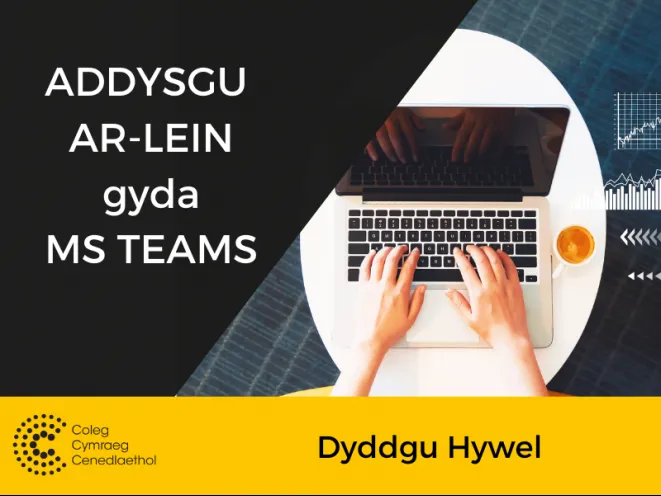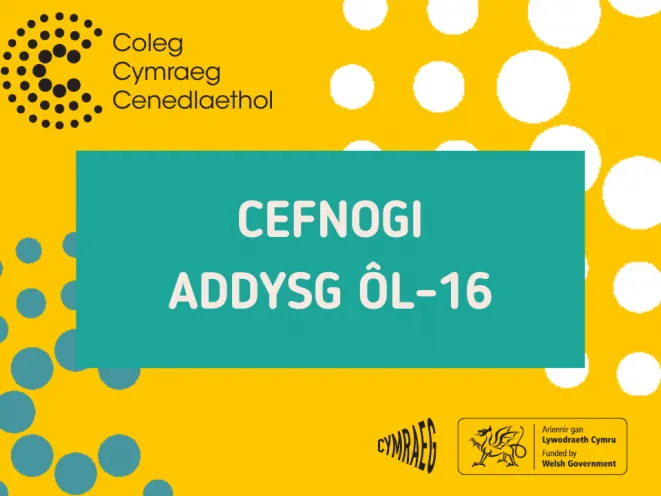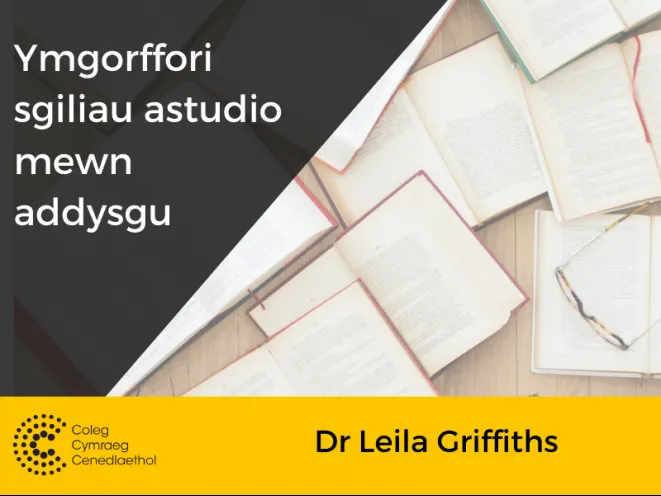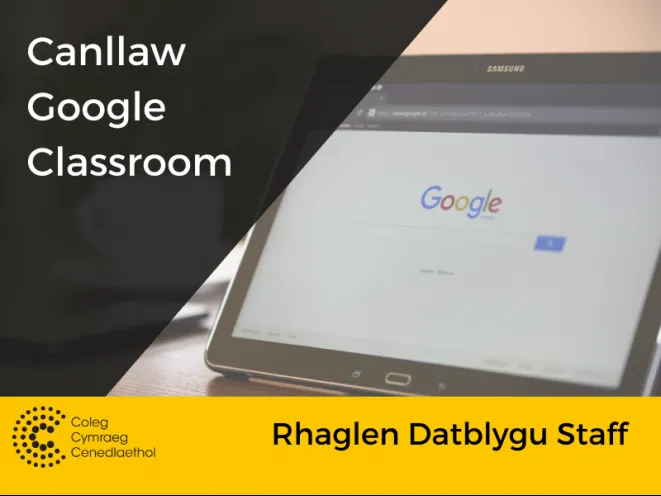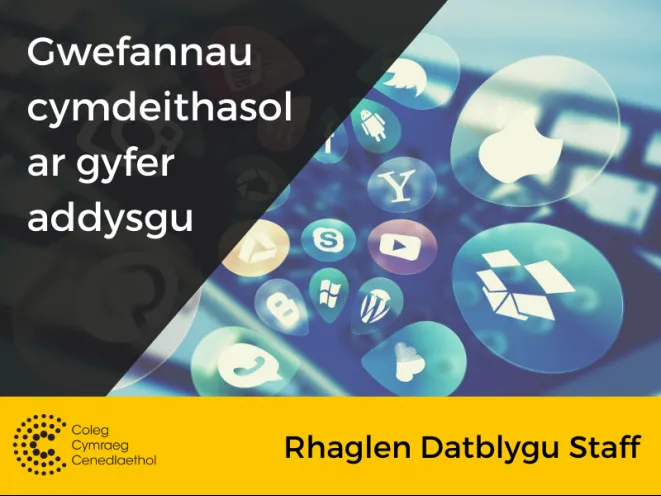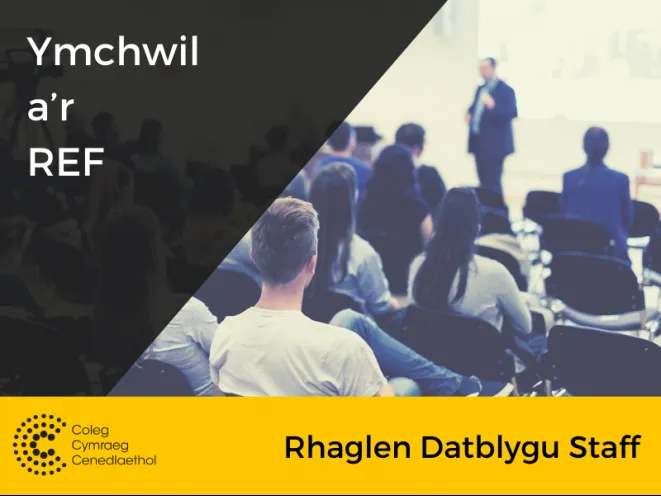This is a workshop to get you started on using the Mentimeter website confidently in your teaching as a way of engaging with your students. www.mentimeter.com This workshop will benefit anyone who wants to develop and build on online teaching methods, innovative learning, online delivery and student engagement. Trainer background: This session is led by Dyddgu Hywel. Dyddgu studied BSc (Hons) Design and Technology Secondary Education leading to Qualified Teacher Status' at Bangor University, she graduated with first class honors. Her early career started as a Design and Technology A Level lecturer at Coleg Meirion Dwyfor, before being appointed as a Design and Technology teacher at Rhydywaun Comprehensive School. She’s now been working at Cardiff Metropolitan University for the last seven years, working as a senior lecturer in the School of Education, with her expertise in innovative teaching, student engagement and technology enhanced learning.
Managing your time and work pressure
At this uncertain time it can be a daunting task to manage time effectively. As many of us adjust to working remotely, while others learn to adapt to working in a different atmosphere on campus, time management can be challenging. This is a practical opportunity to review your personal style in terms of how you manage your work, people, administration, work-life balance and so on. Contents: Virtual working and managing various work pressures along with the challenges of care duties etc. have stretched most of us lately. This workshop will be an opportunity to think about these new pressures and the impact on our time, as well as an opportunity to consider ways of working more effectively both individually and as a team. At the end of this workshop trainees should be able to: • Identify problems and produce an action plan. • Identify patterns of procrastination. • Work better through effective planning and prioritising. • Make effective use of your diary/personal planner • Streamline/get rid of piles of paperwork and burdensome e-mails. • Make effective use of time with others. Mari Ellis Roberts Mari is a Human Resources Officer at Bangor University and is responsible for in-house Staff Development provision. She also manages the University's Motivation and Mentoring scheme and runs personal effectiveness workshops such as time management skills, effective goal setting etc.
Gwerddon Fach on Golwg 360 - contribute an article
Gwerddon Fach publishes short academic articles to give a wide audience a taste of the latest research by leading academics from Wales and beyond As well as publishing popular versions of longer articles that are published in Gwerddon's own e-journal, people are welcome to contribute short articles of around 600 - 1,000 words about any research that interests a wider audience - whether it's a report on their own and their colleagues' latest research, a response to major discoveries, public policy and current affairs or discussions, a report on the proceedings of an academic conference, or a simple introduction to complex research topics. If you are interested in contributing an article, please download the guide (see below) and contact Dr Hywel Griffiths, Assistant Editor Gwerddon: hmg@aber.ac.uk. Website: https://golwg.360.cymru/gwerddon
Gwerddon - contribute an article
Gwerddon is a Welsh-medium academic e-journal which publishes research in the Arts, the Humanities and the Sciences twice a year and which conforms to the academic guidelines of the Research Excellence Framework 2014. The journal has two main aims, which are to stimulate and encourage first-class academic discussion across as wide a range of subjects as possible through the medium of Welsh and thereby to create a store of scholarly material for the use of research students and academics. Gwerddon is funded by the Coleg Cymraeg Cenedlaethol. Website: http://gwerddon.cymru
The Good Supervisory Practice Framework
The Good Supervisory Practice Framework acknowledges, for the first time at a national level, the wide-ranging, highly complex and demanding set of roles involved in modern research supervision. Designed to set expectations for all supervisors and to support supervisor development programmes, the framework is authored by Professor Stan Taylor of Durham University, and is based upon the extensive body of academic research into supervision. Further information on the Research Supervision Recognition Program and the route to recognition is provided below. Contact Lois McGrath to discuss further: l.mcgrath@colegcymraeg.ac.uk UKCGE Website
Avoiding Plagiarism: Effective Academic Writing [guide for tutors]
This resource supports tutors who offer guidance to students regarding good academic practice that they can apply to their reading and writing whilst avoiding plagiarism. Included within this resource are the following: Guidance in the form of a guide for tutors on introducing good academic practice related to avoiding plagiarism; Online materials (Sway presentations and quizzes) that can be shared directly with students; and Worksheets that can be shared with students. The central aim of the resource is to provide a convenient place for tutors to turn to for support and guidance that equips them with practical workshop ideas as well as interactive materials to share with their students. Dr Leila Griffiths Dr Leila Griffiths is a Study Adviser (Welsh medium specialism) at the Study Skills Centre at Bangor University. She has been working as part of a team that aims to help undergraduates and postgraduates develop the strategies and processes that will help them get the most out of their studies. Leila has experience of working closely with academic schools to support and complement subject-specific provision within the disciplines, and to disseminate good practice. Her experience of working with schools to develop the curriculum and of developing a skills module for the Coleg Cymraeg has recently been published here. In addition to the provision within academic schools, the Centre also provides individual face-to-face (usually), telephone or Teams appointments, maths and statistics support, as well as generic workshops and online study guides for students at all levels of study.
Online Teaching with MS Teams (Workshop by Dyddgu Hywel)
This workshop will benefit anyone who wants to develop and build on online teaching methods, innovative learning, online delivery and student engagement. Objectives of the workshop Adopt effective teaching skills online Delivering effectively through Microsoft Teams Leading group work activities during online seminars Content (a series of 3 video presentations by Dyddgu Hywel) Video 1 - Communicating with students through Teams Video 2 - Online teaching through Teams Video 3 - Breakout Groups At the end of these workshops, trainees should be: comfortable with online teaching confident leading online activities and tasks comfortable using all equipment within Microsoft Teams Presenter Background Dyddgu Hywel Background Dyddgu studied BSc (Hons) Design and Technology Secondary Education leading to Qualified Teacher Status' at Bangor University, she graduated with first class honors. Her early career started as a Design and Technology A Level lecturer at Coleg Meirion Dwyfor, before being appointed as a Design and Technology teacher at Rhydywaun Comprehensive School. She’s now been working at Cardiff Metropolitan University for the last seven years, working as a senior lecturer in the School of Education, with her expertise in innovative teaching, student engagement and technology enhanced learning.
Resource to Support Post-16 Education
The resource includes planning resources pertaining implementing the Welsh Medium Further Education and Apprenticeship Action Plan. The resources will help you plan based on the themes below: Strategic Planning Learners Staff Provision Teaching Resources Qualifications Employers Sgiliaith Resources You will also have access to a calendar, discussion forums and a messaging system. The material resides on the Coleg Cymraeg's Blackboard site, and so you will need to create a Blackboard account to view the resources (see below for link). Please find a video detailing how to use the resource below.
Incorporating study skills into teaching
This workshop will be of interest to staff wishing to explore approaches to study skills, and the possibilities of integrating and introducing elements of study skills into academic programs/modules/courses. Presenter: Dr Leila Griffiths Leila Griffiths is a Study Adviser at the Study Skills Centre at Bangor University, and has worked as part of a team aimed at enabling undergraduate and postgraduate students during the transition to University and progression through it. The Centre works closely with academic departments to support and complement subject specific provision within the disciplines, and to disseminate best practice. Leila has experience of working closely with staff in a number of different academic departments in the area of learning development. Workshop aims Develop an awareness of approaches to study skills at subject level; Sharing best practice in relation to academic schools in the field of study skills; Explore the possibilities of presenting study skills as an integrated element of an academic module or course. Learning Outcomes Introduce aspects of study skills at a subject level to students (ensuring that the study skills provision offered by the school is relevant to their students' subject-specific studies); Identify study skills best practice when designing modules/courses; Being aware of models and methods of presenting study skills within modules/courses.
Google Classroom Guidance
Guidance on the use of Google Classroom as produced by Grwp Llandrillo Menai.
Social media for teaching in higher education: : Facebook, Instagram, Snapchat, Tik Tok, Twitter and YouTube
This workshop will be of interest to anyone wishing to use social media networks to support their teaching. The resource includes three presentations: Social media for teaching Instagram Snapchat and Tik Tok Social media for educating Facebook Twitter and YouTube social media
Research and the REF (Research Excellence Framework)
This training is intended for early-career academics and research students. The resource will provide a full overview of the REF (Research Excellence Framework) in a Welsh context. The resources are presented by Professor Delyth James. There is a focus on REF 2021, and the 6 workshops which form this resource will address the following: What is REF? – overview Which academics are included in the REF? Units of Assessment Research Outputs (quality v quantity) Impact Cases Environment statement How does REF relate to PhD students and early career researchers? Summary of implications for Welsh-language researchers

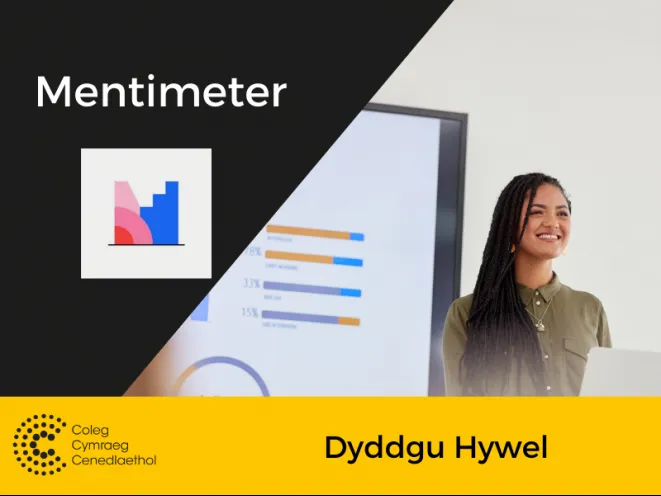
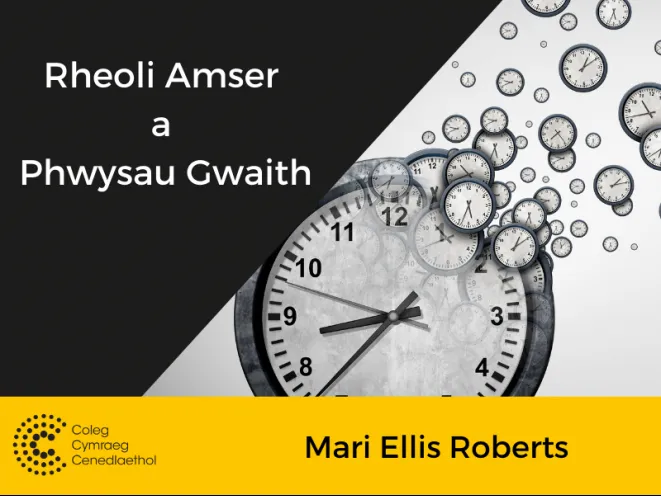



![Osgoi llên-ladrad: Ysgrifennu academaidd effeithiol [canllaw i addysgwyr], Dr Leila Griffiths](/image_cache/0/3/f/8/9/03f89db70b2a722c1ff3373086eb270cf596996f.webp)
